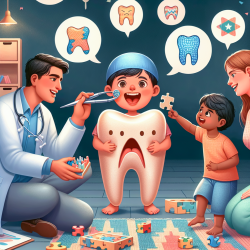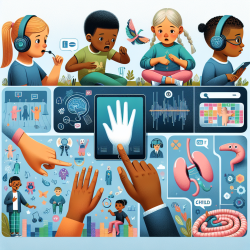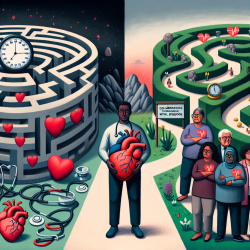Enhancing Online Therapy Through Historical Insights
In the ever-evolving field of speech-language pathology, staying informed about the latest research is crucial. However, revisiting historical research can also provide valuable insights. The article titled Concerning Some Old Medical Journals by W.B. Howell, presented at the Montreal Medico-Chirurgical Society in 1925, offers a unique perspective that can enhance our understanding and practice of online therapy today.
Historical Context and Modern Application
Howell's research delves into the practices and observations documented in old medical journals. While the context and medical understanding of the 1920s differ significantly from today's, the core principles of observation, documentation, and iterative improvement remain relevant. As practitioners at TinyEYE, we can draw parallels between these historical practices and our modern approach to data-driven therapy.
Key Takeaways for Practitioners
- Emphasize Detailed Documentation: Howell's work underscores the importance of meticulous record-keeping. In online therapy, maintaining comprehensive records of each session can help track progress and tailor interventions effectively.
- Encourage Continuous Learning: The historical journals highlighted by Howell were instrumental in advancing medical knowledge. Similarly, staying abreast of both historical and contemporary research can foster continuous professional growth.
- Integrate Historical Insights with Modern Techniques: While our tools and methods have advanced, the foundational principles of patient-centered care and empirical evidence remain unchanged. Practitioners can enhance their practice by integrating these timeless insights with current technology and methodologies.
Encouraging Further Research
To truly excel in online therapy, practitioners should not only implement these insights but also engage in ongoing research. Exploring both historical and current literature can inspire innovative approaches and improve outcomes for children. By examining past successes and failures, we can refine our strategies and enhance the efficacy of our interventions.
For those interested in delving deeper into Howell's research, I encourage you to read the original paper. It provides a fascinating glimpse into the medical thought processes of the early 20th century and offers lessons that are still applicable today. Concerning Some Old Medical Journals*Read at the meeting of the Montreal Medico-Chirurgical Society, Friday, November 6, 1925.
Conclusion
By revisiting historical research and integrating its lessons into our practice, we can enhance the quality of online therapy services. As we continue to prioritize data-driven decisions and evidence-based practices, let us not overlook the wealth of knowledge that historical research offers. Together, we can create better outcomes for children and advance the field of speech-language pathology.










